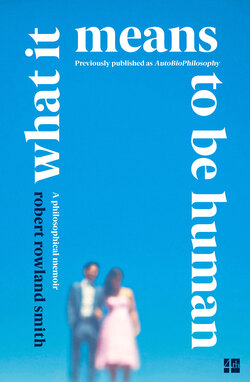Читать книгу What it Means to be Human - Robert Rowland Smith - Страница 11
Trouble in paradise
ОглавлениеThanks to the class divide, however, neither family approved. By the time the couple reached their late teens, and Colin too had left school, Rowland, his father, was ready to take action.fn1 With a view to splitting them up, he packed Colin off again, only this time much farther afield. Colin was dispatched to an outpost of the family food business in Canada.
The plan backfired. From his exile Colin wrote to Patricia, imploring her to join him. He enclosed a ticket for the Atlantic sea crossing. The letter landed on the doormat of a terraced house in Bell Hill, Northfield, one of Birmingham’s less well-to-do districts. Patricia opened it, made up her mind and set sail. Some months later, at a United Reformed church in Hamilton, Ontario, in a ceremony attended by no more than a handful of well-wishers, they married.
Colin and Patricia might have settled in Canada for life, but a combination of factors drew them back to England. Here my mother was grudgingly accepted and subsequently patronised by her in-laws. The newlyweds set up home in south Croydon, then a still desirable suburb of London. Colin began commuting to the family business’ head office on Tooley Street, opposite London Bridge station. Patricia gave birth to three children, two girls and one boy. She sent me to Dulwich College.
My two sisters were privately educated also. The combined fees can’t have been cheap, but the business was doing well and paying Colin a tidy salary. In 1970 the family moved to a much-extended house with a large garden on a private road further into the suburbs. I had a pine tree outside my bedroom window. Colin bought himself Jaguars, Daimler Double Sixes and BMW 7 Series. For Patricia there was a gold Ford Escort, then a cherry red Opel Manta. The pinnacle was a white two-seater Triumph Spitfire with detachable roof. I would beg her to collect me from school in it. My parents shopped for clothes on Bond Street. One year we went on holiday to Chewton Glen in the New Forest, then the UK’s fanciest hotel.
Yet by the end of that decade a serpent had slithered in. The economy was tanking. The family business was running out of the steam that had powered it since its heyday in the late 1960s. A major factor had been the death of ‘Uncle Bob’. He had been the company’s driving force. Robert Rowland Smith – after whom I was named – was my grandfather Rowland’s brother, and my father’s uncle. Tall, talented and magnetic, Uncle Bob was a legend. With no children of his own, he invested his energies not only in the firm but also in his extended family. So whilst he was happy to splurge on himself – a mansion in St John’s Wood, a Rolls Royce – it was he who had bought Colin and Patricia that first house in south Croydon. What with his passing and the weather in the market turning squally, the business began to founder.
From Colin’s perspective, the squeeze on company revenues wasn’t the only challenge. Without Uncle Bob’s mediating influence, Colin found himself working directly to a father whose modus operandi with his son was criticism. ‘Useless’ was his put-down of choice. Colin was conscious that his father had gone on to have a second family. The youngest of four among that second batch of children was another son, also named Rowland. This new Rowland was about fifteen years my father’s junior and an incipient rival. My father was jealous not just in the way that any brother might be jealous of a half-brother, but also because Rowland – known as Rowley – was taking his own first steps in the family business.
